Timeline Of ISU EWB
Ghana
Ullo is a small village in the Jirapa District of the Upper West region of Ghana with 15,000 permanent residents in 38 villages and settlements scattered across 125,000 acres. In the Ullo Dantie village, there is a 30-year old rural boarding school with capacity for 1500 students who travel from all over the region to attend the local high school. Ullo is an impoverished community where almost all of the villager’s practice subsistence farming and the area has a daily income of about $0.75 per person. Ullo is a traditional village and has a chief that is in charge of the area. While the people of Ullo have a hard way of life, they have strong, optimistic spirits and are proud of their community and the people in it.
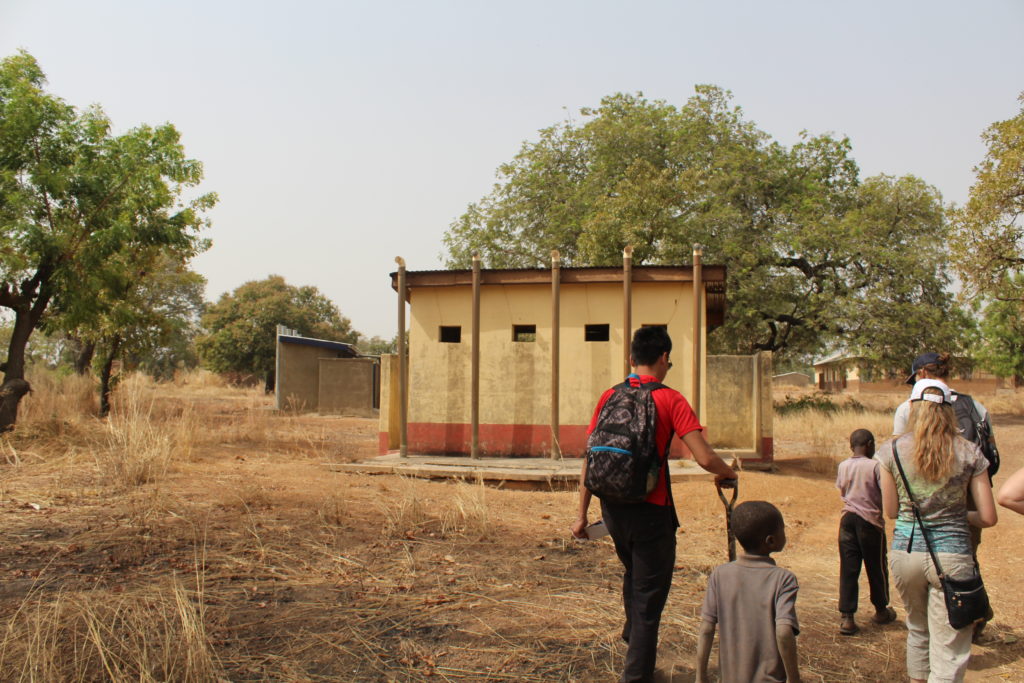
Throughout the year, Ullo gets about 3 months of heavy rainfall and 9 months of drought. This makes it extremely difficult to obtain water to meet basic human needs for the majority of the year. The current boreholes in the community stop producing water 4 months into the dry season and break down frequently due to heavy use.
The Ullo community has eight nearby boreholes and wells that act as water sources during the dry season. The primary issue with these boreholes is that they do not have a high enough yield to provide either the community or the school with an ample amount of water. They are slow to pump and slow to recharge. Women and students spend up to 5-7 hours a day waiting in long lines to obtain their daily water. This issue of collecting water greatly hinders the students’ educations. Currently, students must sometimes spend class time or hours all through the night gathering water. They are currently forced to walk great distances, and stay up late nights in order to find available boreholes. This decreases the available class time and puts a greater strain on the community water supply as a whole. Better access to water for the students will significantly alleviate the burden of collecting water for the entire community of Ullo because it will reduce the lines at all the boreholes.
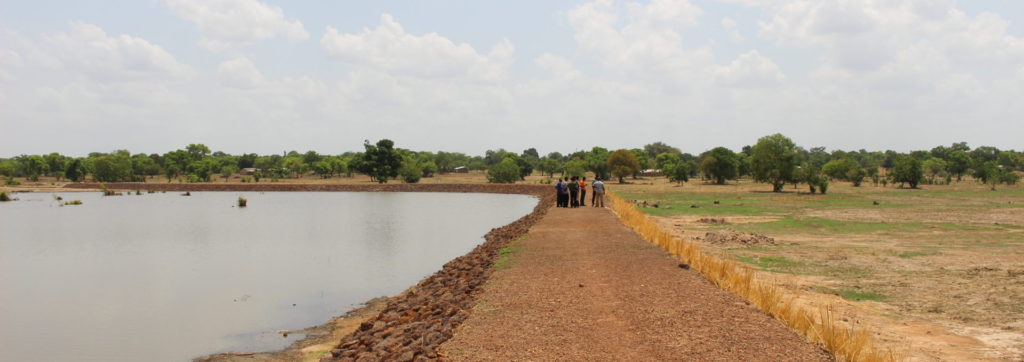
Engineers Without Borders – ISU partnered with Ullo in 2013 to help the community meet their basic human needs. The goal of the initial project of EWB-ISU’s partnership was to provide the boarding high school (and ultimately the community) safe and accessible drinking water for their daily needs. Additionally, the goal included providing students with a better environment for learning in which they can spend more time in the classroom and be better rested for class. This project will allow the people of Ullo the means to improve their quality of life and take the first step in lifting themselves out of poverty and into prosperity.
The current water project achieved this goal by making daily access to clean drinking water available for the 1500 students that can attend the secondary school in Ullo. This project was completed in January 2019 by mechanizing an existent borehole and implementing a distribution system that made water available at five distribution points within the school grounds. The school and Water Committee of Ullo have taken over the ownership of the system, including its operation and maintenance, and are equipped to cover associated costs through the tuition paid by the students and possibly funds contributed by the community. The senior high school students were able to use water at their dormitories for the first time when they returned to school after winter break in January 2019. The distribution system is fully functional and in use today.

Ullo Trip History
December 2019: Monitoring, Assessment, and Implementation Trip
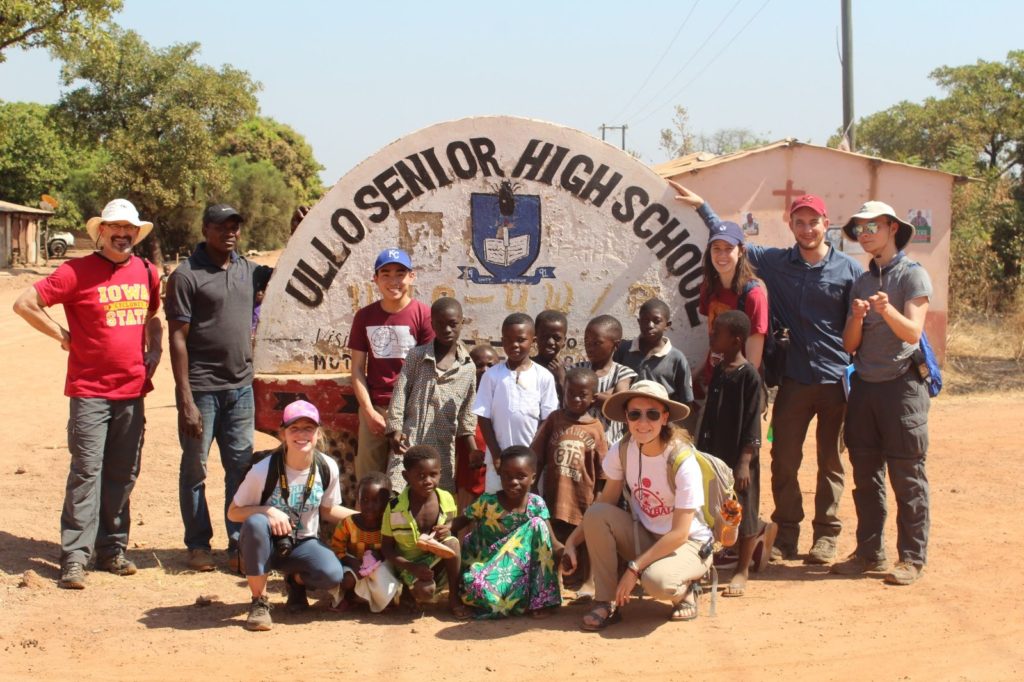
The monitoring, assessment, and implementation travel team arrived in Ullo in December 2019 to build upon the work completed during the summer trip and implement the kitchen stoves project.
The team had a very productive trip that consisted of many successful meetings. Self-Help International, an Iowa based NGO operating in Ghana, came to the community to assess the greatest needs and potential mitigations. After many meetings and careful deliberation, a site was chosen for the clinic and surveying was conducted by the travel team. The district director of the Ghana Health Service and the executive director of the Catholic Diocese Health Service and members of their teams met with EWB-ISU and affirmed their written commitments to partner with us by staffing, equipping, supplying and operating the new clinic if we build it. The team visited many existing clinics in Ghana to gather information for designing the future Ullo clinic.
The team was invited to the governor’s house for a meeting and visited the US embassy on their way home. Overall, it was a very successful trip where the new kitchen stoves were implemented and valuable information was gathered and connections were made for future projects.
October 2019: Ullo Travels to Iowa State
For the first time ever, a member of the Ullo community was hosted by EWB-ISU at Iowa State University! Thanks to the generous donations of friends, family, and alumni, the club raised enough money to sponsor Zack Saeed’s travel to ISU as a visiting scholar for three weeks.
During Zack’s time on campus, he attended two courses on human nutrition that will be useful for his job as a health care provider. He also had the opportunity to interact with many EWB members, attend the general meetings, travel team meetings, engineering group meetings, and executive board meetings. It was a great experience for general members to meet someone from the Ullo community and for Ullo to see all of the work that goes on here at Iowa State while we are not traveling.

May 2019: Summer Monitoring and Assessment Trip
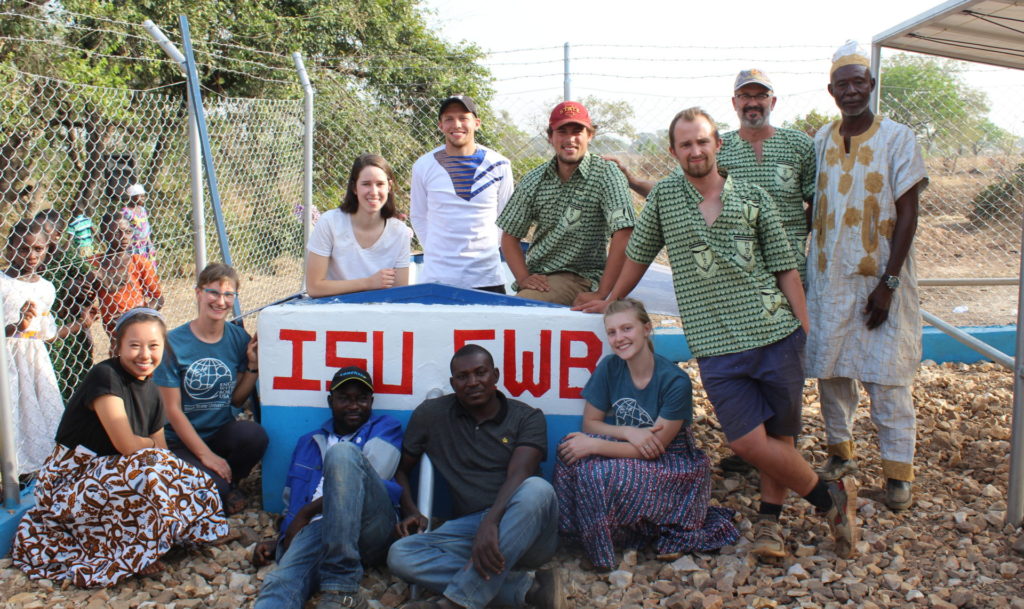
The summer monitoring and assessment trip was a unique trip that was added to supplement our annual winter trip. One student from EWB-ISU traveled to Ullo for two weeks accompanied by two students from Kwame Nkrumah University of Science and Technology (KNUST).
The objectives of this trip were to build relationships with KNUST who can be a resource for future input and technical help on projects, establish an annual summer travel program, observe and test the operation of the water system, fix the chlorination system, and conduct an initial assessment for future project work.
Projects being assessed for the future were implementation of new kitchen stoves, construction of a rainwater catchment system at the high school, investigation of the construction of a new clinic, as well as a sanitation project.
The water system implemented on the previous trip was a tremendous success! The system eliminated the need for students to spend hours fetching water from off-campus boreholes and giving the students and teachers more time to focus on academics. This year for the first time ever this 30-year old rural boarding school of 1,000 students had the second highest standardized scores in the entire district. And starting this semester all students will be on campus together instead of being split into 3-month rotating cohorts. The system pumps up to 25,000 liters of water to the school every day for the student’s use!
December 2018: Second Implementation Trip
The second implementation team arrived in the winter of 2018 and the team worked with a local contractor to complete the construction of the
distribution system. They installed solar panels, the solar powered pump, and chlorination system, dug trenches and installed piping, constructed concrete
pads and attached storage tanks in order to bring water to the girls’ and boys’ dormitories as well as the school kitchen.
The Ullo community threw a large ribbon cutting celebration full of singing and dancing in order to commemorate the operation of their new system and
improved quality of life. The travel team enjoyed bonding with the community and truly experiencing life in Ullo. Ullo is a very special community full of
people who are selfless and care about helping others around them. Even though they have so little,community means so much to them.
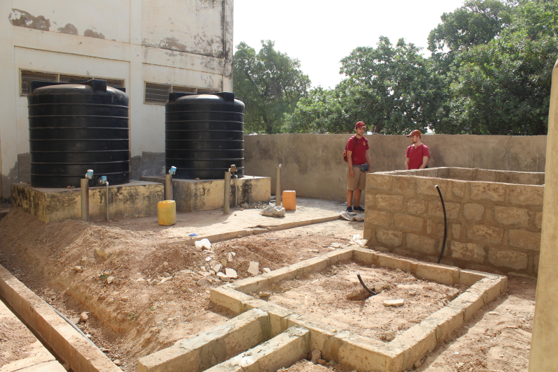
May 2014: First Assessment Trip
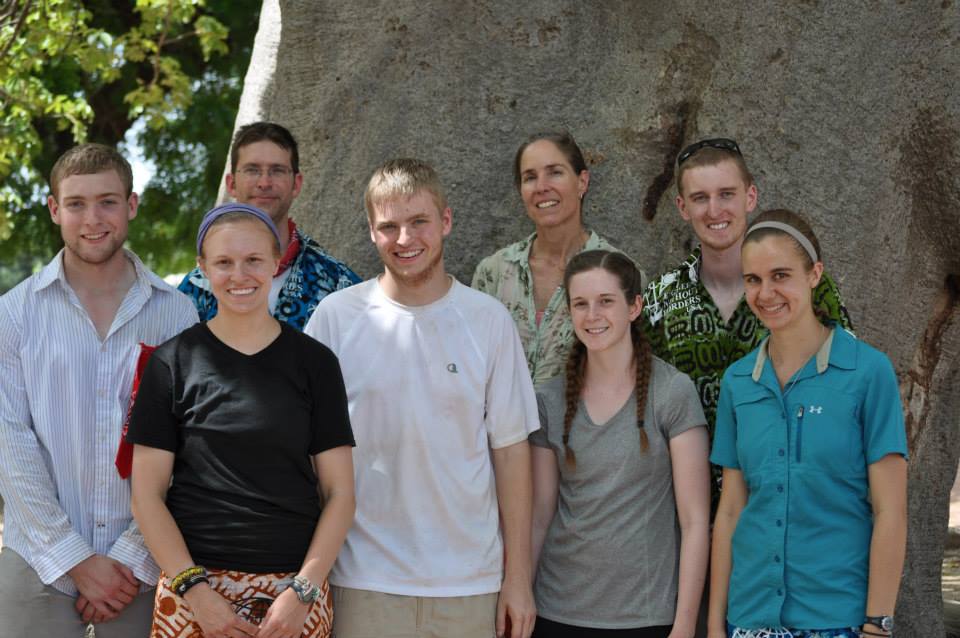
The first trip to Ghana took place in 2014 and served as the assessment for future trips. A team of seven students and one Iowa State faculty member traveled to Ullo to meet with the community, build a relationship, and assess their needs. A partnership agreement between Ullo and the chapter was signed and information was gathered about the community’s needs and possible solutions were brainstormed.
The consensus at the time was to construct a dam-reservoir system to supply water for the community over the lengthy annual dry season. The District Assembly of the area implemented a dam shortly after EWB-ISU started working on plan, but it failed within a year.
